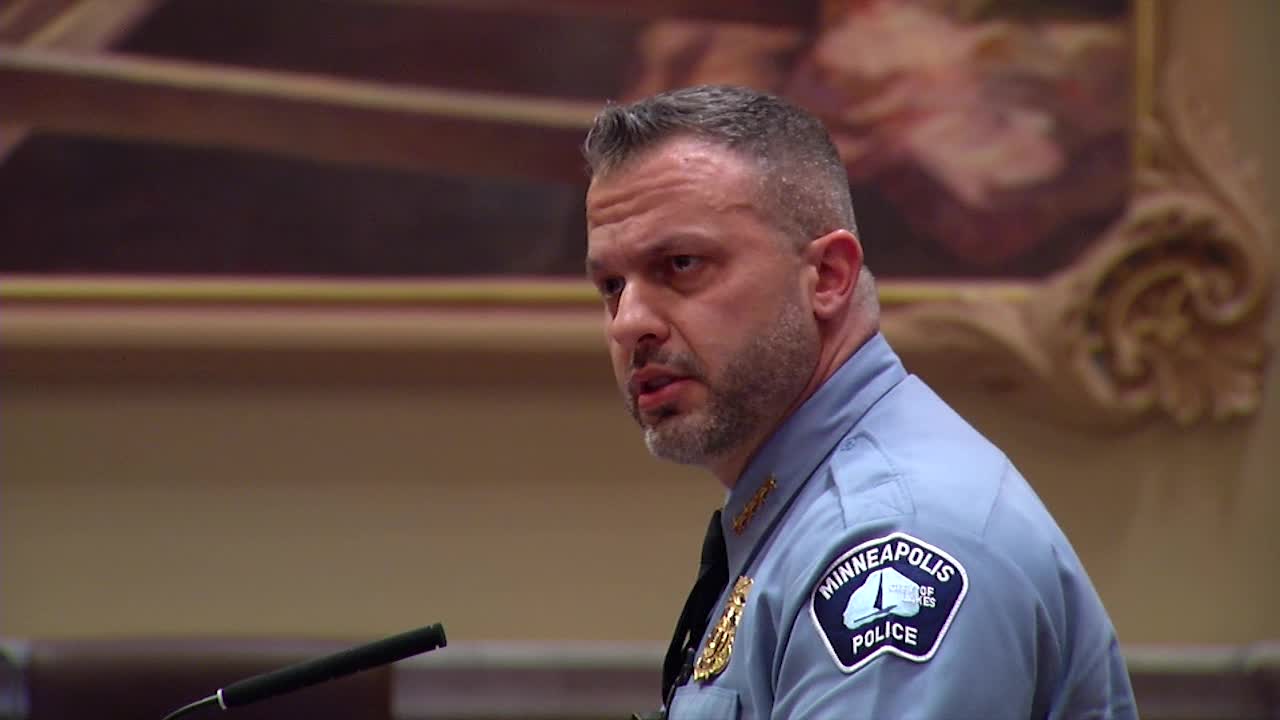MPD chief gathering support as he works to position department for consent decree
[anvplayer video=”5166427″ station=”998122″]
The Minneapolis Police Department is another step closer to arranging the department to best handle state and possible federal oversight.
Police Chief Brian O’Hara is requesting additional staff positions to do this and is gaining support from city leaders and council members — one being Dr. Cedric Alexander, who oversees MPD as commissioner of the city’s Office of Community Safety.
“I’m certainly in full support of his efforts,” Alexander said. “I think that we have to be very specific in these roles that he’s asking for.”
As previously reported by 5 EYEWITNESS NEWS, Chief O’Hara feels adding an assistant chief and a chief of staff would benefit MPD under a consent decree.
One of the new positions would be a second assistant police chief. O’Hara says having two will allow one to oversee operations and investigations while the other can focus on community relations. The second new position is a chief of staff. Currently, a deputy chief is handling those responsibilities.

Minneapolis Police Chief Brian O'Hara addresses the Minneapolis City Council Committee of the Whole on Tuesday, March 7, 2023. (KSTP)
“We currently have a deficit sort of at the top, as far as what is needed and the amount people that we have to adopt these functions, and this will just allow us to have greater levels of accountability,” O’Hara said.
A consent decree is a legally binding settlement enforced by the court that would direct and track reforms. O’Hara is readying his department following results from a Minnesota Department of Human Rights investigation that found the city of Minneapolis and police department engages in a “pattern or practice of race discrimination.” That investigation was launched after the 2020 murder of George Floyd.
Leaning on his experience during a federal consent decree during his time in Newark, New Jersey, O’Hara spoke to the Minneapolis City Council’s Committee of the Whole on Tuesday.
“We are in the business to ensure public safety in the city on one side, and also to ensure trust accountability, and constitutional policing on the other,” O’Hara told council members. “We need to make sure the police department is structured to accomplish that mission.”
This was the second committee O’Hara addressed about this — both times were met with mostly support. Ward 4 council member LaTrisha Vetaw was most vocal about her concerns on Tuesday.
“You keep using the word ‘accountability’ or ‘police accountability,’ and these four positions — I’m really struggling to see how that’s going to help that,” Vetaw said.
O’Hara responded, “We will have this as part of the settlement. If you look at any consent decrees that are public, there are sections on supervision and accountability, and it requires certain positions to do certain things.”
A big reason O’Hara says these positions are needed is because this would open up more flexibility with his deputy chiefs.
Based on his experience with consent decrees, he says a deputy chief will need to directly oversee consent decree implementation. And eventually, O’Hara would like to have another deputy chief to just be in charge of internal affairs, a department that currently falls under the bureau of professional standards.
The two proposed positions — assistant chief and chief of staff — will be taken up during the City Council’s regular meeting on Thursday.